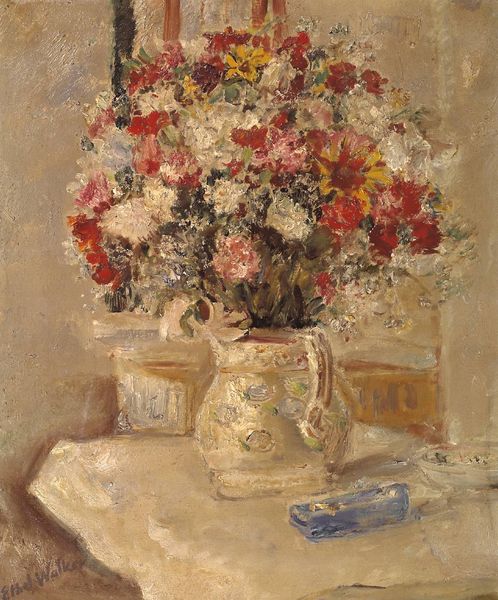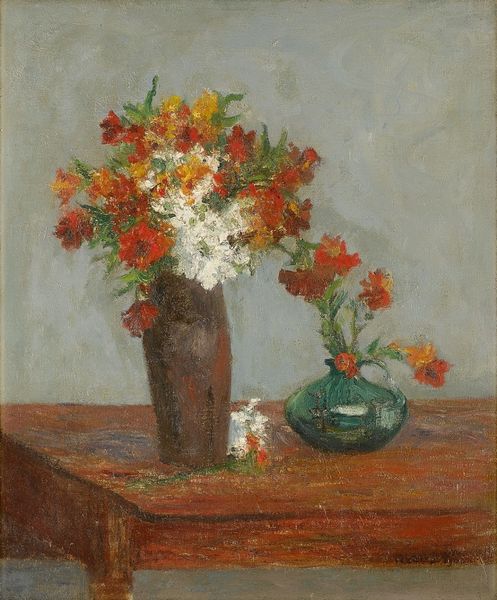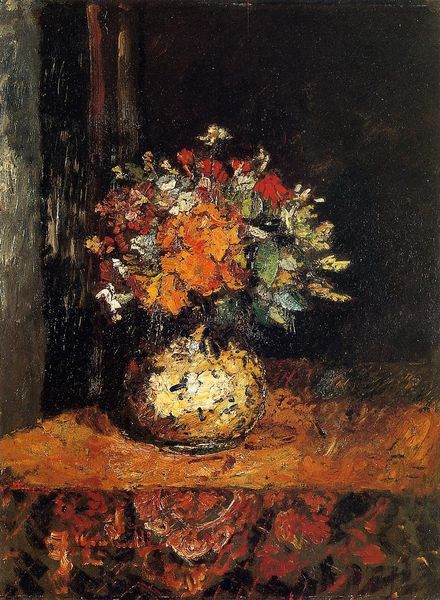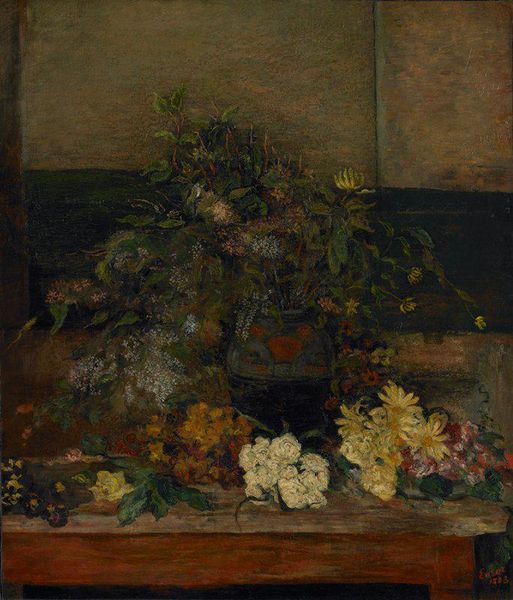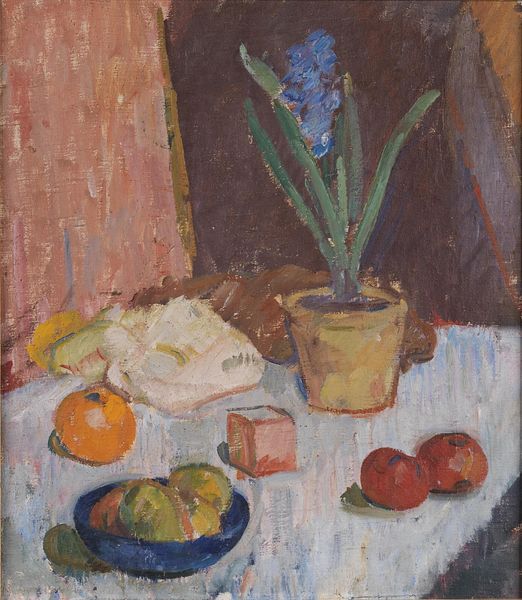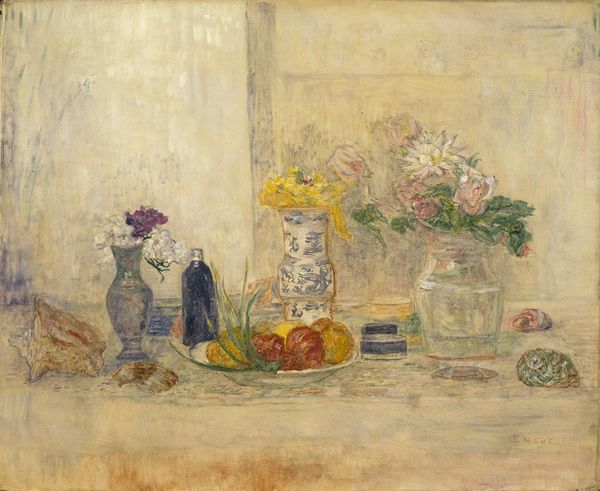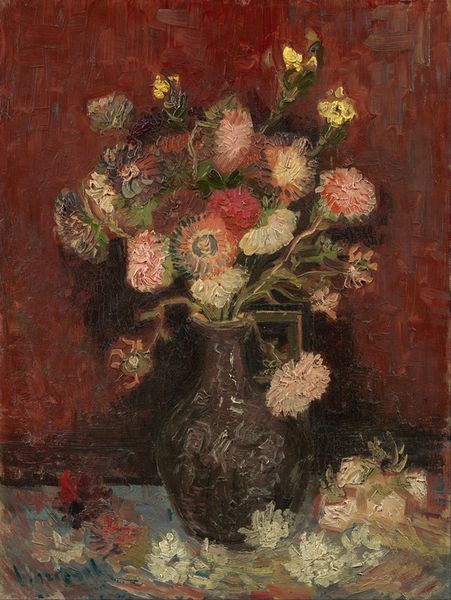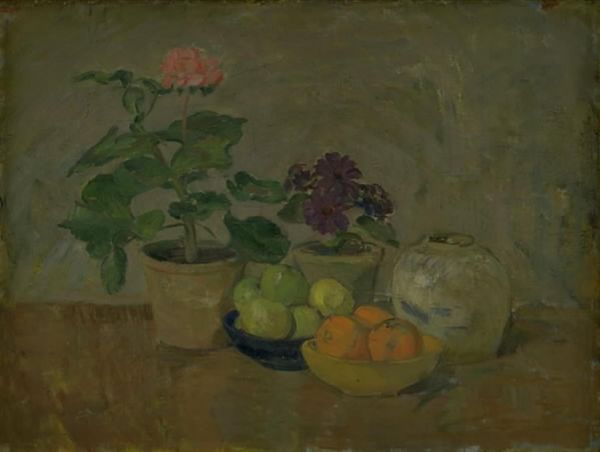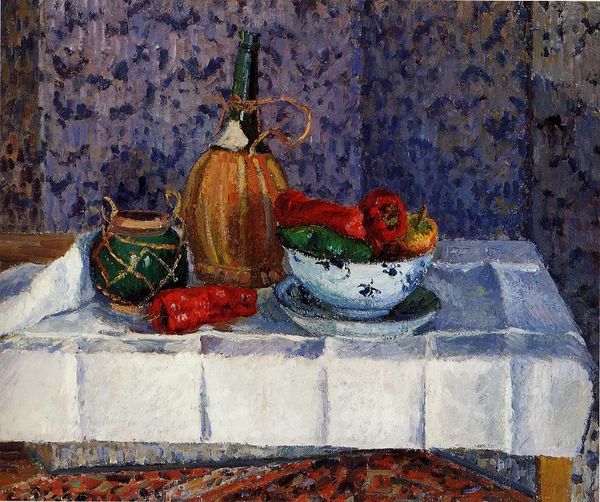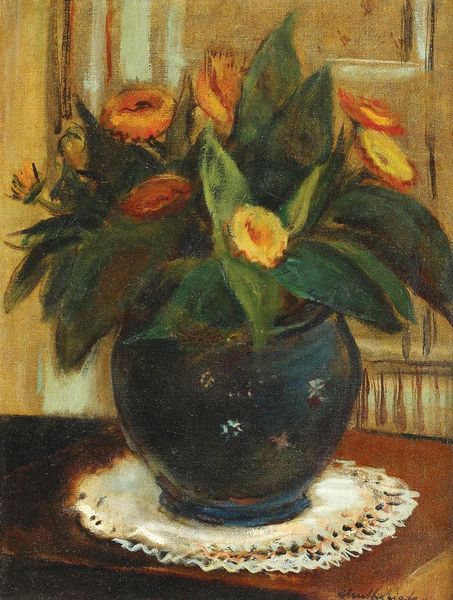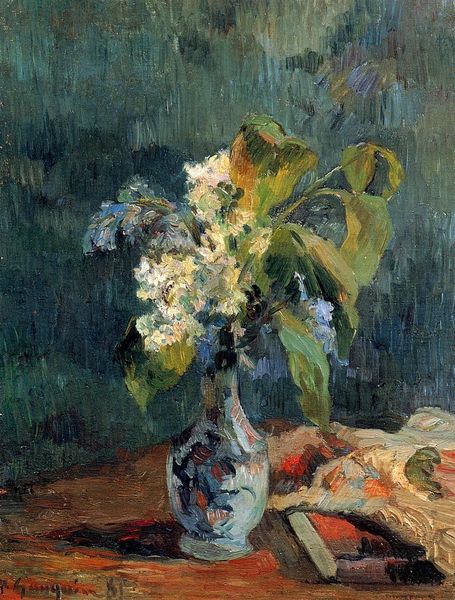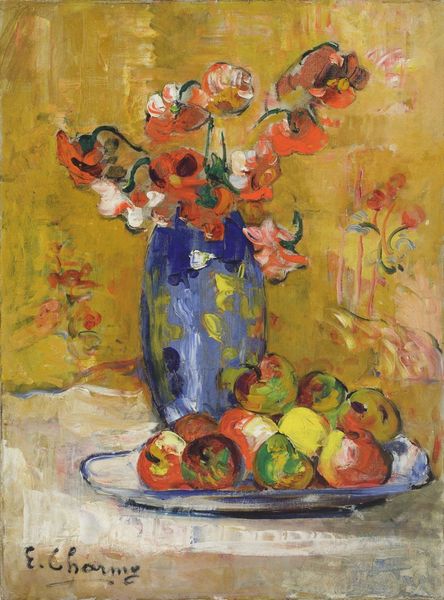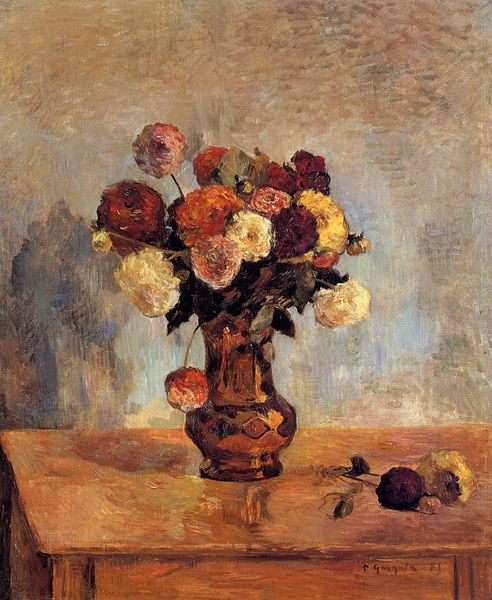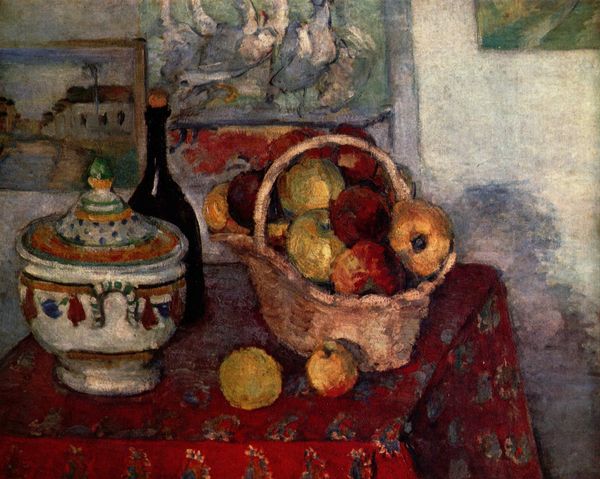
oil-paint, impasto
#
still-life
#
oil-paint
#
oil painting
#
impasto
#
realism
Copyright: Henri Catargi,Fair Use
Editor: Here we have Henri Catargi’s “Still Life With Fruit,” created in 1965 using oil paint. I’m really drawn to its textural, almost tangible quality. How do you interpret this work, especially considering the time it was made? Curator: This seemingly simple still life, viewed through a lens of the mid-20th century socio-political landscape, can be read as an act of subtle resistance. The intense impasto and slightly muted color palette – particularly the juxtaposition of the cultivated, presented fruit with the single apple sitting on the side - speak volumes. Is the apple isolated from the arranged bounty representing a silent cry of socioeconomic struggles, a deliberate divergence from the art of the dominant class, perhaps? Editor: Resistance through fruit? I wouldn’t have thought of that. So you are saying the placement has a meaning? Curator: Absolutely. Considering Catargi's Romanian context, the choice of commonplace subjects and a rejection of overtly propagandist themes common under socialist realism opens a dialogue about artistic freedom, or rather the lack of it. This act of focusing on everyday items is more than just painting fruit; it questions the artistic status quo. The materiality of the paint becomes a vehicle for expression in itself, embodying the artist's unspoken commentary. Editor: That’s fascinating. I never considered how a still life could hold such layered meaning. Curator: It reminds us to always question what’s deliberately being left unsaid or unseen. It’s about looking beyond the surface of any artistic practice and digging deeper into the historical and societal dialogues in order to unpack not just an aesthetic purpose, but a critical message that stands apart. Editor: I’ll definitely look at still lifes differently from now on. Thank you.
Comments
No comments
Be the first to comment and join the conversation on the ultimate creative platform.
